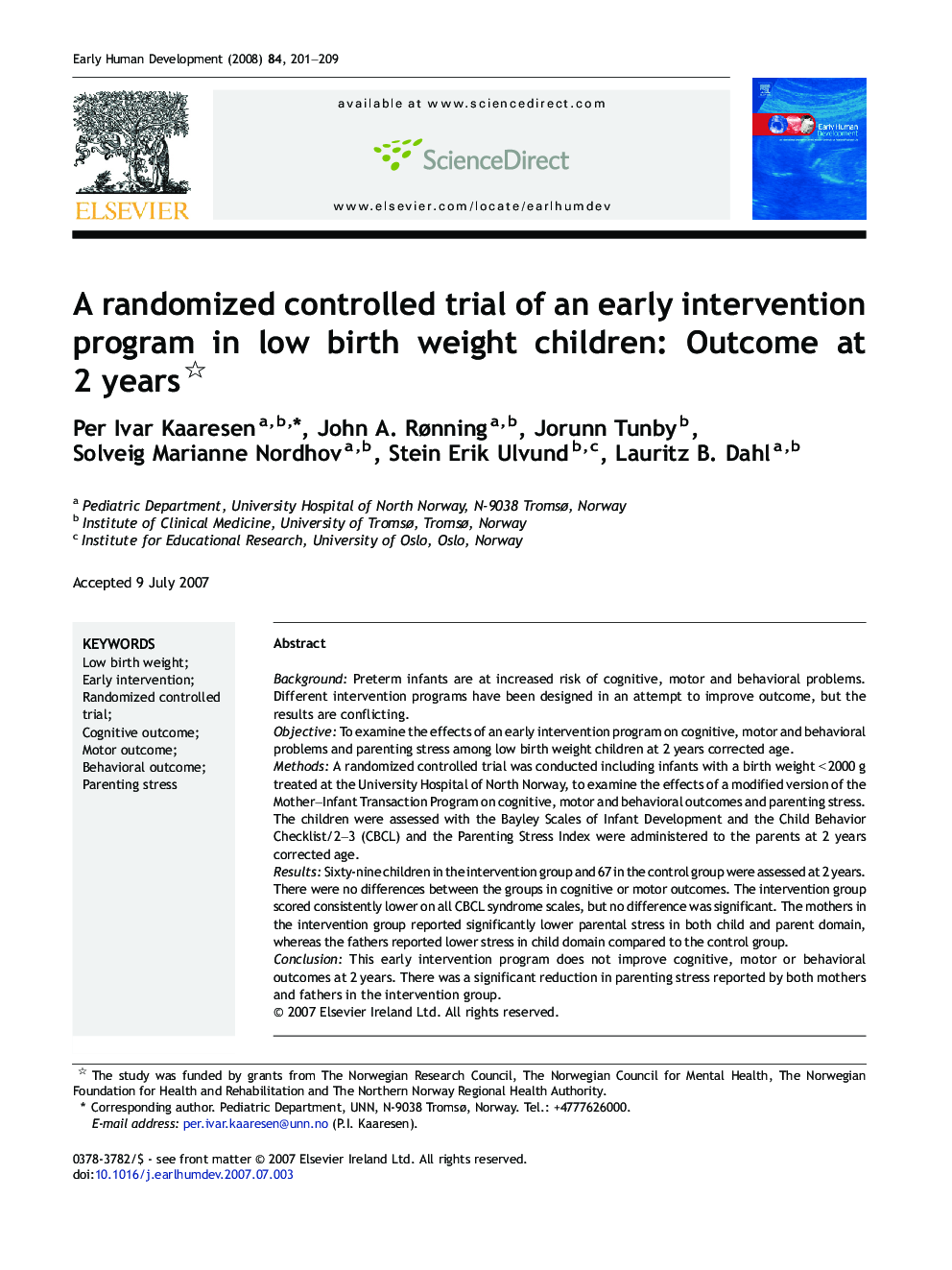| Article ID | Journal | Published Year | Pages | File Type |
|---|---|---|---|---|
| 3917219 | Early Human Development | 2008 | 9 Pages |
BackgroundPreterm infants are at increased risk of cognitive, motor and behavioral problems. Different intervention programs have been designed in an attempt to improve outcome, but the results are conflicting.ObjectiveTo examine the effects of an early intervention program on cognitive, motor and behavioral problems and parenting stress among low birth weight children at 2 years corrected age.MethodsA randomized controlled trial was conducted including infants with a birth weight < 2000 g treated at the University Hospital of North Norway, to examine the effects of a modified version of the Mother–Infant Transaction Program on cognitive, motor and behavioral outcomes and parenting stress. The children were assessed with the Bayley Scales of Infant Development and the Child Behavior Checklist/2–3 (CBCL) and the Parenting Stress Index were administered to the parents at 2 years corrected age.ResultsSixty-nine children in the intervention group and 67 in the control group were assessed at 2 years. There were no differences between the groups in cognitive or motor outcomes. The intervention group scored consistently lower on all CBCL syndrome scales, but no difference was significant. The mothers in the intervention group reported significantly lower parental stress in both child and parent domain, whereas the fathers reported lower stress in child domain compared to the control group.ConclusionThis early intervention program does not improve cognitive, motor or behavioral outcomes at 2 years. There was a significant reduction in parenting stress reported by both mothers and fathers in the intervention group.
